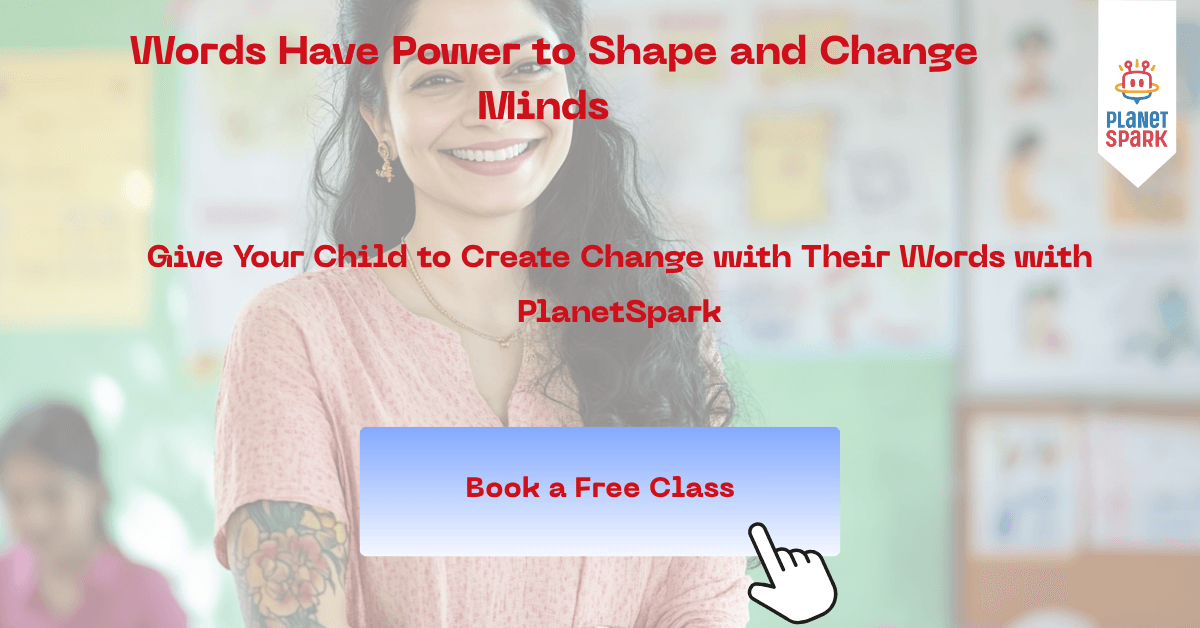Tattoos in the Workplace: Shifting Perceptions
Last Updated At: 19 Jul 2025
10 min read

Tattoos in the Workplace: Expression or Unprofessional?
In the past few decades, tattoos have transformed from fringe symbols associated with rebellion or subculture into mainstream expressions of identity, culture, and art. As Millennials and Gen Z become a dominant force in professional environments, traditional signage of “professionalism” is being redefined. What used to be frowned upon—visible ink—is now frequently accepted and, in some fields, even embraced.
This article provides a comprehensive and in-depth examination of tattoo-related research and organizational attitudes, exploring how tattoos serve as storytelling tools and drawing parallels with the creative writing skills we nurture in children. By the end, you’ll see why PlanetSpark’s Creative Writing Course represents a modern avenue for encouraging authentic self-expression in young minds. These courses empower children to harness the power of language, structure their thoughts, and develop a voice of their own, skills that are increasingly essential in today’s dynamic, story-driven world.
The Roots of Tattoo Stigma
Historically, tattoos have had strong negative associations linked with lower socioeconomic status, criminality, or deviance. A 2012 Harris Poll found that among non‑tattooed respondents, 45% felt tattooed individuals were less attractive, 27% said they seemed less intelligent, and 50% associated tattoos with rebellion. These perceptions contributed to hiring decisions focused more on image than ability.
A 1990s-era employer survey (covering hospitality, retail, and office roles) found that less than 30% of companies were willing to hire someone with a visible tattoo, and over 40% admitted they would be influenced negatively in most industries. These early biases laid the groundwork for uniform dress codes and the widespread expectation to conceal ink in professional settings. Yet these views began to shift as tattoo prevalence rose and newborn generations embraced body art as normalized self-expression.
Changing Attitudes Backed by Data
Employment and Earnings
A landmark study by the University of Miami and the University of Western Australia surveyed more than 2,000 Americans, finding that tattooed individuals had the same—if not better—employment outcomes and wages than their non‑tattooed counterparts. In certain segments, tattooed candidates were even more likely to be hired.
Managerial Perspective
Data from TeamStage shows that around 61% of managers believe tattoos are more acceptable now than five years ago. However, only about 35% say their company welcomes tattoos across all roles. Around 68% of hiring managers still feel visible tattoos could hinder a candidate’s chances, but this is down from historical levels.
Promotion and Senior Leadership
Tattoo bias appears to diminish at higher seniority. Approximately 36% of executives have tattoos themselves, and promotions are less affected by ink in most modern organizations. Even patients are reportedly comfortable with doctors who show tattoos—around 75% accept visible ink in clinical professionals.
Public Perception and Customer Behavior
Research from Rice Business and the University of Houston shows that customers interacting with tattooed service workers did not reduce sales and sometimes viewed them as more creative and competent, particularly in artistic or innovative roles.
Broader Sociocultural Trends
Pew Research (2023) reveals that 32% of U.S. adults have at least one tattoo, up from 23% in 2010. The rising popularity of tattoos reflects a broader cultural shift toward valuing individual expression and breaking away from rigid societal norms. Millennials and Gen Z—who together account for the majority of today’s workforce—view tattoos less as acts of rebellion and more as personal symbols of identity, transformation, or life milestones. Studies indicate that these generations often associate body art with confidence, authenticity, and creativity.
The growing acceptance of tattoos is also influenced by their increasing visibility among celebrities, influencers, athletes, and even political figures. Social media has played a key role in normalizing tattoos, with platforms like Instagram showcasing tattoo art as a celebrated form of creativity. Consequently, nearly eight in ten Americans believe society is becoming more accepting of tattoos overall, reflecting a generational shift in perception and aesthetics.
Yet, despite these progressive attitudes, lingering concerns persist—especially within traditional corporate settings. TeamStage data shows that around 40% of people still believe visible tattoos are inappropriate at work, and 76% think tattoos could hurt one's chances in a job interview. Additional research published in the Journal of Human Resources echoes this concern, noting that hiring bias based on tattoos still exists, particularly in industries such as finance, law, and healthcare, where conservative dress codes and client-facing roles dominate.
Moreover, a 2022 LinkedIn survey found that while 59% of employees with tattoos felt comfortable showing them at work, 41% still felt the need to conceal their body art during interviews or formal events. This duality underscores an ongoing tension between personal freedom and professional conformity. Regional and cultural differences also play a role, as tattoos may be more accepted in urban, creative, or progressive areas, while facing skepticism in more traditional or rural communities.
Despite these hurdles, the trajectory points toward increasing normalization. Younger hiring managers and executives are bringing more inclusive mindsets to leadership roles. Companies prioritizing diversity, equity, and inclusion (DEI) are also reevaluating appearance-based biases, realizing that valuing authenticity can contribute to a stronger workplace culture and employee engagement.
Ultimately, tattoos are not just skin deep—they reflect broader societal dialogues about identity, belonging, and freedom of expression, much like the stories children learn to craft in PlanetSpark’s Creative Writing Courses. As society evolves, the workplace will continue to mirror the values of its newest generations, where self-expression, in ink or words, is no longer a liability but a strength.

Industry-Specific Perspectives and Policy Shifts
Leading Brands Embracing Ink
Companies like UPS, Disney, and Virgin Atlantic have officially relaxed their policies to allow visible tattoos, provided they are not offensive. These changes came after internal culture reviews and the realization that allowing ink increases inclusion and morale without harming customer experience.
Tolerance by Industry
Tech & Creative: Highly permissive—Google, Adobe, Apple value creativity over conformity.
Startups & Marketing: Often fully accepting tattoos as part of branding and identity.
Finance, Law, Medicine: Some remain cautious; tattoos may need to be covered, especially during client or patient interactions, though back-office or tech roles tend to be more lenient.
Many hospitals, schools, and law firms still require discretion in visible ink but are gradually loosening restrictions, especially where talent shortages and inclusivity are prioritized.
Generational and Cultural Differences
Older generations tend to associate ink with arrogance, risk-taking, or unprofessionalism. Younger individuals often see tattoos as affirming identity and belief, especially when ink reflects culture, memorial events, or personal philosophy.
According to a Reddit-based study, people under 50 rated heavily tattooed images as more attractive than older respondents. Facial tattoos consistently scored lowest, even among tattoo enthusiasts. Moreover, a recent survey by Statista indicated that individuals aged 18–34 were more likely to view tattoos as “artistic expression” rather than a rebellious act.
A clinical psychology context study showed therapists with provocative tattoos were rated higher in empathy and competence by patients, a surprising positive outcome contrary to older stereotypes. This suggests tattoos may serve as a bridge for rapport and relatability in therapeutic settings.
Tech professionals on Reddit often note accepting attitudes, but advise caution around hand, neck, or face tattoos—these still carry stigma in more conservative or client-facing roles. Additionally, anecdotal reports from international professionals highlight cultural nuances. For example, while tattoos are widely accepted in the U.S. and parts of Europe, they still carry negative connotations in countries like Japan or South Korea, where they are often linked to criminal associations or non-conformity.
Understanding these cultural and generational contexts is crucial, not only for fostering inclusive workplaces but also for helping young people navigate identity and professionalism.
Tattoos as Storytelling and Identity — A Link to Creative Writing
Tattoos often carry deep meaning: memorializing loved ones, cultural symbols, literary quotes, or personal journeys. Each inked image can serve as a narrative device—communicating values, beliefs, or experiences through visual syntax.
Similarly, creative writing is a symbolic medium where individuals tell their stories using words. Whether it’s poetry, journaling, or fiction, writing provides a platform for identity, emotion, and perspective.
PlanetSpark’s approach to creative writing encourages students to author their voices, transforming personal ideas into structured, expressive forms. Writing becomes a tattoo of thought on the page, a personal mark that builds confidence and clarity.
Why Self-Expression Matters in Childhood
Children grow through discovery, especially of their identity. Self-expression aids emotional intelligence, self-esteem, and cognitive flexibility. Studies in child development show that writing and narrative play help children organize thoughts and share inner worlds with confidence.
PlanetSpark’s Creative Writing Course is structured to build these skills:
1:1 Live Sessions
Personalized Curriculum & Assessment
AI Tools (SparkX, AI practice)
Spark Diary & Gamified Modules
Clubs and Communities
Contests & Recognition
Regular Progress Monitoring
Final Thoughts
Tattoos have evolved from work‑career‑ending taboos into mainstream markers of identity, creativity, and belonging. As workplace norms shift toward inclusivity and authenticity, the traditional bias against visible ink has weakened, particularly in dynamic and creative sectors.
In much the same way, creative writing empowers children to express their inner stories and perspectives. At PlanetSpark, we believe every child has a voice worth exploring, and writing is the medium through which they can project it.
If you want your child to grow into a confident, articulate individual equipped for a modern, diverse world, PlanetSpark’s Creative Writing Course is the ideal launchpad. Through personalized mentoring and reflective practice, children learn not just the mechanics of writing but also the art of expression, the power of narrative, and the value of their voice.
In today’s evolving world, whether expressed through ink or inked words, authentic self-expression should be celebrated, not judged.

FAQs: Tattoos, Professionalism, and Creative Writing
Are tattoos still considered unprofessional in most workplaces?
It depends on industry and culture. Conservative fields may still frown on visible ink, but modern employers increasingly prioritize skills and diversity over appearance.
Which professions commonly restrict visible tattoos?
Legal, finance, medicine, and government roles often maintain stricter appearance policies. However, acceptance is growing, particularly in tech, media, healthcare, and retail support roles.
Can tattoos impact hiring or promotion decisions?
While bias remains in some sectors, research shows tattoos rarely hinder hiring or career progression, especially in businesses that value creativity, inclusion, and performance.
Do tattoos negatively affect customer interactions?
Not in most contexts. Studies show customer perceptions are neutral or positive, especially when tattoos align with company culture or brand identity.
What's acceptable for hand, neck, or facial tattoos?
These placements still carry a strong stigma in many industries. While arm tattoos are becoming common, facial/neck/hand ink may limit options in client‑facing or conservative roles.
How does PlanetSpark help kids express themselves creatively?
Through personalized writing, speaking, and reflection tools. PlanetSpark uses AI feedback, gamified exercises, journaling, and live coaching to foster clarity and confidence.
How can I enroll my child in PlanetSpark’s Creative Writing Course?
Visit PlanetSpark’s official website to schedule a free trial. From there, you’ll receive a diagnostic, a tailored roadmap, and access to full course features once enrolled.
Personalized Communication Report
Record a video to get a AI generated personalized communication report for your child
Select Learner's Class

Hi There, want to try these
tips for your child with
LIVE with our expert coach?
Let's check your child's
English fluency
